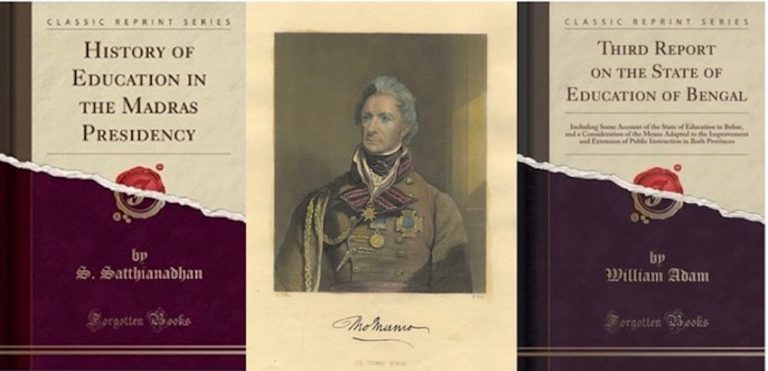Sociohistorical Studies of Early Language and Literacy Instruction in Colonial India

Locations: Bangalore, Kolkata, Goa
Study Lead: Dr. Shailaja Menon
Team Members: Dr Rahul Mukhopadhyay (Academic Collaborator, Kolkata), Dr. Manish Jain (Academic collaborator, Delhi), Rajat Kanti Suri (Kolkata), Harshita Das (Bangalore) and Sujata Noronha (Ph.D. Scholar)
An important way by which we can meaningfully engage with and interrogate dominant discourses surrounding early literacy is by studying its history. History almost always reveals that what appears to be natural is often not—ideas about children, childhood, pedagogy and curriculum have been conceptualized differently in different time periods, and across different cultures. The ELI project therefore proposed a strand of research that examines the history of early language and literacy instruction during the colonial era (1813-1947). Broadly, the Bengal and Madras presidencies have been identified as geographical/cultural areas of interest. The Ph.D. scholar, Ms. Sujata Noronha plans to conduct similar work on colonial Portuguese Goa.
The broad intent of this study is to examine policies and practices related to the teaching of early language and literacy during the period of interest – how they emerged and developed during this period and the influences that shaped them. A particular interest is to examine issues related to equity – for example – was early literacy (embedded in primary schooling) viewed by the governments in question as for the classes, or for the masses? Were different kinds of early language and literacy instruction envisaged for different segments of the population? Who were the important players, what were the important debates and policies (e.g., English vs. regional languages as medium of instruction), what were the prominent methods? The work of the colonial government, missionary sects, as well as indigenous educators are of interest to the project, and language education in both English and regional languages are also of interest during the exploratory period. It is anticipated that as work on the project proceeds, contours will get more sharply defined and bounded.
Methods
The time-line of the project is staggered, with work on the Bengal presidency starting off in Year 1 (2017), while the bulk of the work on the Madras Presidency and on Goa is scheduled for Year 2 (2018).
We propose to conduct primary archival work, as well as a survey of secondary sources. Sources could include primers, readers, and other educational material; teacher training manuals; reports, correspondence, diaries of educational reformers; newspapers; biographies, autobiographies, and memoirs of educationists, teachers, education functionaries. Policy documents that outline the stance of the colonial state will also be identified and analysed. Efforts will be made to look at archives of specific institutions of the colonial period in terms of curriculum, assessment materials, provision of materials and activities for early literacy, and content and logic of teacher-training. It is anticipated that as work on the project proceeds, contours will get more sharply defined and bounded.